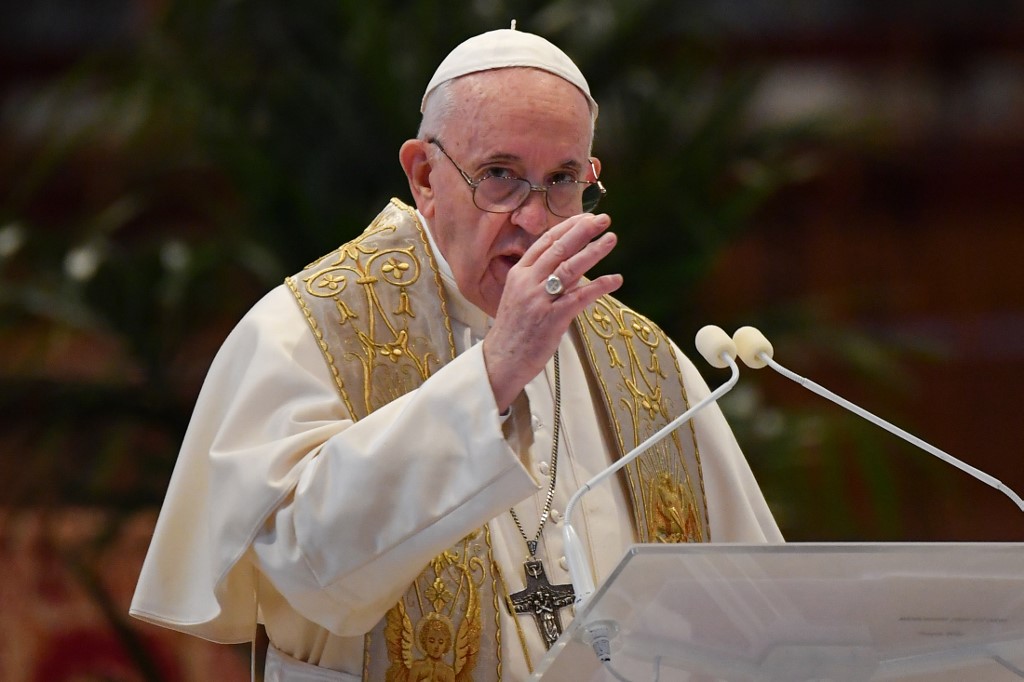International News
Koran-Burning Activist Shot Dead In Sweden, Five Suspects Detained
Salwan Momika, the Iraqi-born Christian activist known for repeatedly burning the Koran in 2023, was shot and killed in Södertälje, south of Stockholm, late Wednesday.
His death comes amid an ongoing trial where he faced charges of inciting ethnic hatred.
Prosecutor Rasmus Oman confirmed to AFP on Thursday that an investigation had been opened into the killing of the 38-year-old, with five individuals detained in connection with the crime.
READ ALSO: Deadly Stampede At Hindu Festival In India Leaves 15 Dead
“We’re in the very early stages … there’s a lot of information gathering. Five people have been detained suspected of involvement in the crime,” Oman stated.
Swedish police responded to reports of a shooting in an apartment building where Momika lived. Officers found a man with gunshot wounds, who was transported to a hospital but later succumbed to his injuries.
Several media outlets reported that the attack may have been broadcast live on social media. Aftonbladet suggested the assailant gained entry to the building via the roof, though authorities have not confirmed this detail.
Momika’s killing occurred just a day before a Stockholm court was set to deliver a ruling on his trial for “agitation against an ethnic group.” The court has since postponed its decision until February 3 following his death.
Momika gained international attention in 2023 after publicly desecrating the Koran, including burning copies of Islam’s holy book outside a Stockholm mosque.
He, along with co-protester Salwan Najem, was charged with inciting hatred against an ethnic group on four occasions that summer.
Their actions sparked outrage across the Muslim world and led to diplomatic tensions between Sweden and several Middle Eastern countries.
Recall that in July 2023, angry protesters stormed the Swedish embassy in Baghdad twice, setting fires within the compound during the second demonstration.
In response to the escalating backlash, Sweden’s intelligence agency, Säpo, raised the country’s terror threat level to four on a five-point scale, citing the Koran burnings as a factor that made Sweden a “prioritised target.”
Despite the controversy surrounding his protests, Momika insisted that he had no ill intentions toward Sweden.
“I don’t want to harm this country that received me and preserved my dignity,” he told Aftonbladet in April 2023.
Momika had been living in Sweden since 2018, but in October 2023, the Swedish Migration Agency revoked his residency permit, citing false information in his original application.
However, authorities granted him a temporary permit, stating that there was an “impediment to enforcement” of his deportation to Iraq.
The month before, Iraq had formally requested his extradition in response to his Koran-burning demonstrations.
In March 2024, Momika left Sweden for Norway, where he sought asylum, claiming that Sweden’s commitment to free speech and human rights was “a big lie.” However, Norwegian authorities deported him back to Sweden a few weeks later.
Before moving to Sweden, Momika had a controversial political history in Iraq. His social media activity indicated links to a Christian armed faction that fought against the Islamic State, as well as the creation of an obscure Syriac political party.
He also had public rivalries with influential Christian paramilitary groups and was briefly arrested.
In 2019, he joined Iraq’s anti-corruption protests, which were met with a violent crackdown that left over 600 people dead nationwide.
Momika’s case is among the first in Sweden to test the boundaries between free speech and inciting hatred.
While Swedish law generally protects acts of religious criticism, prosecutors argued that the context and rhetoric surrounding Momika’s actions could constitute “agitation against an ethnic group.”
In October 2023, a Swedish court convicted another man of inciting ethnic hatred for a 2020 Koran burning, marking the first legal ruling of its kind in the country.
International News
Russia Launches Deadliest Attack On Ukraine As Ceasefire Hopes Fade
In the early hours of Thursday, Kyiv was rocked by a devastating Russian missile and drone attack, described by Ukrainian officials as one of the most brutal strikes on the capital since Russia’s full-scale invasion began in 2022.
The Ukrainian air force reported that Russia unleashed 70 missiles and 145 drones overnight, targeting several cities across the country.
The barrage on Kyiv left at least nine people dead and over 60 wounded, including six children.
READ ALSO: Suspected Attack: Explosion Strikes Russian Consulate In France
Air raid sirens blared across the capital around 1:00 a.m., warning residents to seek shelter.
Moments later, loud explosions shattered the night, lighting up the sky and shaking buildings. “Phone calls can be heard from under the rubble — the search will continue until we are confident that we have found everyone,” said Interior Minister Igor Klymenko.
He confirmed that two children remained unaccounted for amid the chaos.
Rescue workers scrambled to pull survivors from under collapsed buildings. Fires broke out across multiple apartment blocks, and damage was reported in at least 13 locations.
In one tragic scene in the Sviatoshinsky district, a woman sat on a foldout chair beside a covered body, gently stroking the arm of a loved one killed in the strike.
Nearby, a bloodied woman clutched her dog as a first responder spoke calmly to her, trying to provide comfort amid the destruction.
Prime Minister Denys Shmygal condemned the assault in stark terms. “Cruise and ballistic missiles, drones, air bombs — Russia is cruelly and cynically firing missiles at Ukrainian cities, killing people while the world is making efforts to establish peace,” he wrote on social media.
The attack came just hours after Ukrainian President Volodymyr Zelensky reiterated his call for a ceasefire. “Stopping the killings is the number one task,” Zelensky stated online following a meeting between his aides and Western officials in London.
However, any momentum toward peace appeared to falter. Russian President Vladimir Putin has yet to respond to Zelensky’s offer to halt airstrikes on civilian areas and previously dismissed a joint U.S.-Ukrainian proposal for an unconditional ceasefire.
“Putin demonstrates through his actions, not words, that he does not respect any peace efforts and only wants to continue the war,” said Foreign Minister Andriy Sybiga. Echoing that sentiment, presidential aide Andriy Yermak declared, “Putin shows only a desire to kill.”
Former U.S. President Donald Trump, speaking hours before the attack, claimed a peace deal with Russia was close.
He blamed Zelensky for stalling negotiations by refusing to accept Moscow’s annexation of Crimea, stating that Ukraine’s position “will do nothing but prolong the ‘killing field’.”
Meanwhile, Russian forces expanded their offensive to other regions.
In Kharkiv, at least seven missiles struck a densely populated residential district, according to city mayor Igor Terekhov. Russia’s defense ministry also reported downing 87 Ukrainian drones, including 45 over Crimea.
Earlier this month, Russia’s campaign of aerial terror intensified. A missile strike on the city of Sumy killed at least 35 people, while another attack on Zelensky’s hometown, Kryvyi Rih, claimed 19 lives — nine of them children.
International News
Panic In Istanbul As 6.2-Magnitude Earthquake Hits Marmara Sea
Residents of Istanbul were jolted by a 6.2-magnitude earthquake on Wednesday, which struck the Marmara Sea near the city’s western fringes, prompting widespread concern but causing no immediate casualties.
The quake, which occurred at 12:49 p.m. local time (0949 GMT), originated in Silivri, according to Interior Minister Ali Yerlikaya.
“An earthquake of 6.2 magnitude occurred in Silivri, Marmara Sea, Istanbul,” he confirmed on X, formerly Twitter. Yerlikaya also noted that tremors were felt in nearby provinces.
READ ALSO: Massive 7.7 Magnitude Earthquake Rocks Myanmar, Shakes Southeast Asia
Following the initial tremor, Turkey’s disaster management authority, AFAD, reported three more earthquakes ranging from 4.4 to 4.9 in magnitude.
The seismic activity sent people fleeing onto the streets, with many seen anxiously checking their phones or making calls.
“I just felt earthquake, I’ve got to get out,” said a decorator who dashed out of a fourth-floor apartment near Galata Tower. He declined to give his name, visibly shaken by the experience.
Despite the intensity, there were no reports of injuries or building collapses in the city of approximately 16 million people.
“Until now, we have no information about any buildings collapsing,” the governor’s office stated, urging residents to avoid entering structures that may have sustained damage.
Reassuring citizens, the Istanbul municipality also confirmed, “No serious cases have been reported so far following the earthquake in Istanbul,” in a post on X.
Tremors from the quake were reportedly felt as far as Sofia, Bulgaria, according to AFP journalists in the capital.
Authorities continue to monitor the situation as aftershocks persist and damage assessments are conducted across the region.
International News
JUST IN: Vatican Discloses Cause Of Pope Francis’ Death

The Vatican has disclosed that Pope Francis died of a stroke, which caused a coma and irreversible heart failure, according to his official death certificate released on Monday.
The 88-year-old pontiff passed away on Monday morning, nearly a month after being discharged from hospital following treatment for double pneumonia.
In the statement released by the Holy See Press Office, the cause of death was identified as “a stroke, followed by coma and irreversible cardiocirculatory collapse.”
READ MORE: JUST IN: Vatican Mourns As Pope Francis Passes Away At 88
The certification was issued by Dr. Andrea Arcangeli, Director of the Directorate of Health and Hygiene of the Vatican City State.
The medical report also detailed the Pope’s history of health challenges, including “acute respiratory failure caused by multimicrobial bilateral pneumonia, multiple bronchiectases, high blood pressure, and Type II diabetes.”
His death was confirmed through electrocardiographic thanatography.
“I hereby declare,” wrote Dr. Arcangeli, “that the causes of death, to the best of my knowledge and judgment, are as stated above.”
Pope Francis, born Jorge Mario Bergoglio, became the 266th leader of the Roman Catholic Church in 2013 and was widely recognized for his efforts to modernize Church doctrine and promote global social justice.
















